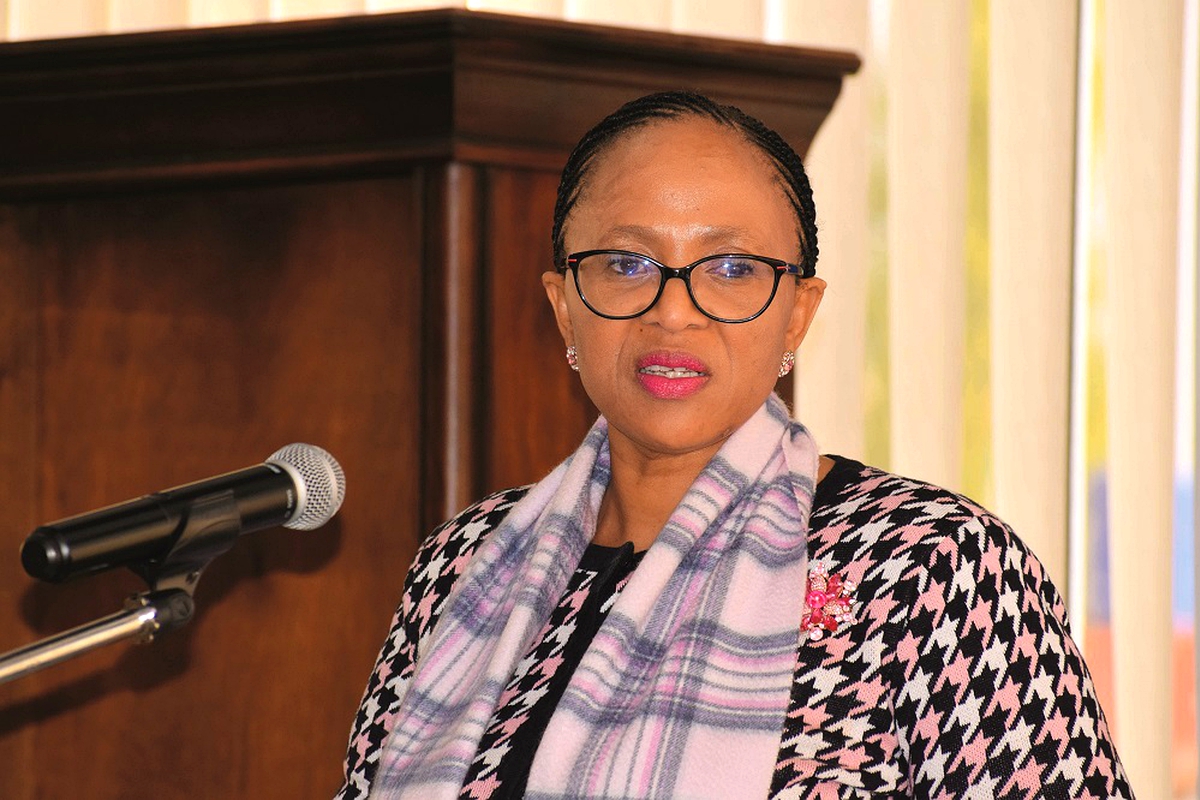LESOTHO’s outstanding debt has increased by M3.3 billion in the first seven months of the year, jumping to M22.2 billion in October.
business
Dec. 14, 2022
NEO SENOKO
3 min read
Govt debt increases by M3 billion

Minister of Finance, Dr Retšelisitsoe Matlanyane
Story highlights
The stock is made up of domestic debt of M4.6 billion and external debt of M17.6 billion.
The major drivers of debt were losses from local currency depreciation, which contributed around a 12 percent increase to total debt as well as new borrowing from the domestic market with a five percent contribution.
This was explained by the Minister of Finance, Dr Retšelisitsoe Matlanyane, delivering the medium-term budget review this week.
Total debt service thus far amounted to M1.2 billion, comprising principal payments of M945.3 million and interest payments of M195.2 million.
Domestic debt stock of M4.6 billion includes short-term debt (T-bills) of M1.1 billion which is 23.6 percent of domestic debt and long-term securities of M3.5 billion.
At the end of October this year, domestic debt service was M545.8 million, made up of principal redemptions of M500.3 million and interest payments of M45.5 million. Principal payments included retired T-bills at M75 million and M425.3 million towards bonds.
External debt was serviced by M594.6 million, broken into principal payments of M445 million and interest payments of M149.7 million.
“If massive exchange rates depreciations experienced earlier in the year do not persist throughout the remainder of the year, the existing budget is expected to cover all external and domestic obligations without a need for additional budget,” Matlanyane said.
The domestic financing strategy of the 2022/23 fiscal year entailed acquiring M1 500 million from the market in the form of T-Bonds and T-bills.
The auction of Treasury Bonds, Matlanyane said, was planned to raise M1.0 billion while Treasury Bills are expected to raise M500 million.
In June, the government experienced a liquidity crisis and approved the acquisition of additional T-Bills worth M540 million.
The total amount of T-Bills raised in the first half of the year was M728.8 million bringing total short-term debt stock to M1.1 billion.
“After three bond auctions, M652.8 million has been raised, a shortfall of M97.2 million from a planned M750 million. The remaining auction of the financial year is scheduled for February and it is expected to raise M250 million,” the Minister further noted.
Enjoy our daily newsletter from today
Access exclusive newsletters, along with previews of new media releases.
In the midterm, the total expenditure execution stood at M8.5 billion, which is 44 percent of the budget.
The expenditure comprises of M7.9 billion, which is 45 percent of the approved recurrent budget, and M616.5 million, 35 percent of the allocated government-financed capital budget.
During the presentation of this year’s budget, policies were put forward for a major fiscal consolidation.
These interventions consisted of revenue enhancement and expenditure containment measures, which were intended to create fiscal space for future investment financing while ensuring sufficient foreign reserves buffer to build resilience, innovation, and setting the economy on high and sustainable growth.
In this regard, the government has promised to continue its effort to curb nonproductive expenditure in order to preserve fiscal space while mobilising domestic revenues.






